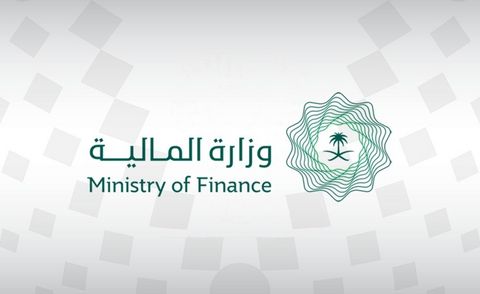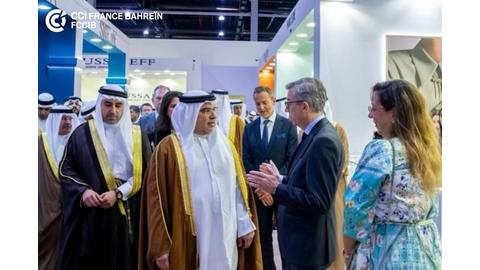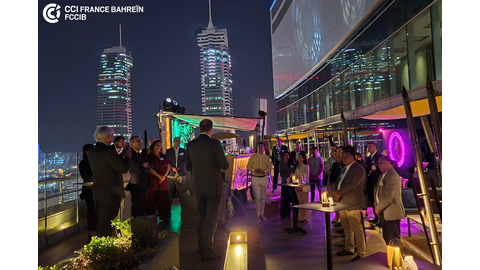Saudi Arabia announces pre-budget statement for fiscal year 2024

Riyadh, Sept. 30 (BNA): The Saudi Ministry of Finance today announced its pre-budget statement for the fiscal year 2024, saying that it estimates total expenditures will reach SAR 1,251 billion, and total revenues SAR 1,172 billion.
The ministry also estimates that a modest deficit will be recorded at about 1.9% of the Gross Domestic Product (GDP), with continued efforts to increase the efficiency of spending and fiscal consolidation, strengthen fiscal sustainability, and implement economic and fiscal reforms, SPA reported.
These efforts are aligned with the pursuit of economic and fiscal reforms, as well as the objectives of Saudi Vision 2030, which include its significant programs, initiatives, and projects. Furthermore, the aim is to stimulate domestic investment growth by enabling the private sector and facilitating its contribution across the Kingdom. Continued efforts will be made to enhance the level of services provided to citizens and residents.
The pre-budget statement for FY 2024 reflects the proactive structural and fiscal reforms that the Kingdom has taken to enhance its economy's ability to face economic developments and challenges, resulting in the positive performance of economic indicators, which has led to GDP growth at a continuous rate, the expansion and performance of the non-oil sector, and the increase of labor force.
The Kingdom continues to support social protection programs and shows continued progress toward the objectives of the Fiscal Sustainability Program. These objectives were achieved by directing expansionary spending to accelerate the implementation of major programs, projects, and sectoral and regional strategies, in order to contribute toward GDP growth, attract investments, and stimulate the local economy.
These measures were supported by continued efforts to develop fiscal performance through the increase of fiscal space and government reserves, in a way that enhances the ability of the Kingdom's economy to respond to and face global financial shocks. The fiscal measures also help Saudi Arabia to maintain sustainable levels of public debt, thus enabling the Kingdom to overcome any challenges that may occur in the future, while promoting growth and strengthening the national funds' capital.
Saudi Minister of Finance Mohammed bin Abdullah AlJadaan said that the government will continue implementing fiscal and economic structural reforms to help develop and diversify the Saudi economy, and to increase economic growth while maintaining fiscal sustainability, which will be achieved by continued implementation of Saudi Vision 2030 initiatives and strategies. Saudi Vision 2030 will help to develop promising economic sectors, enhance investment attractions, stimulate industrial growth, and raise the percentage of local content and Saudi non-oil exports. The minister also highlighted the important role of the Public Investment Fund and development funds, in addition to the continued implementation of structural reforms that enhance the growth of non-oil GDP at high and sustainable rates in the medium-term.
The minister added that the process of analyzing the fiscal and economic risks that face the Kingdom are an essential part of understanding current state challenges. Analyzing these risks also contributes to adopting effective fiscal policies and strategies to mitigate them. He also added that, despite the crises the world is facing—such as a slowdown in the global economy caused by the COVID-19 pandemic, and geopolitical tensions that have negatively affected global supply chains—the Kingdom's economy is in a resilient fiscal position, with fiscal space represented by strong government reserves and sustainable levels of public debt that can accommodate any crises that may occur in the future. In addition, the agile nature of additional spending allows the Kingdom to have control in the medium-term, allowing an extension of implementation periods for projects and strategies, the minister said. He noted that positive growth rates in numerous economic activities are also expected during FY 2024 and in the medium-term. He noted that that the growth rates are a result of many structural reforms and sectoral strategies within Saudi Vision 2030. In addition, he emphasized that the government attaches great importance to strengthening the social protection system to protect citizens from global economic shocks.
He said that the positive forecast for the Saudi economy for FY 2024 is an extension to its performance since FY 2021, where the preliminary forecasts for economic growth rate for 2024 and the medium-term were revised, indicating a real GDP growth of 4.4% for 2024. This is supported by the growth of non-oil activities' with the expectation that the private sector will continue to drive economic growth in the economy, contribute to job creation, and improve trade balances. The government and its private sector partners will continue to implement Saudi Vision 2030 programs and initiatives, sectoral and regional strategies and giga projects, and other economic activities to achieve positive growth rates during 2024 and in the medium-term.
The minister of finance said that the Kingdom's growing economy would boost revenue in the medium-term. He noted that the economic reforms come under the Fiscal Sustainability Program as it focuses on development of medium-term fiscal planning process, with a view to sustaining and stabilizing public finances, while maintaining economic growth rates by diversifying revenue sources, increasing expenditure efficiency, and stimulating private sector growth.
According to the pre-budget statement, total revenues for FY 2024 are estimated to be SAR 1,172 billion, reaching SAR 1,259 billion in FY 2026. Total expenditures are estimated to be SAR 1,251 billion in FY 2024, reaching SAR 1,368 billion in FY 2026. His Excellency also noted that the government's FY 2024 budget is estimated to have modest deficits of 1.9% of GDP, reflecting the efforts to stabilize government revenues and the continuous investments to support a sustainable economic growth.
He said the government will follow its approved annual borrowing plan to finance the expected budget deficit and pay the principal debt due in 2024. In addition, the government will continue to search for available opportunities after considering the market conditions to finance strategic capital projects and infrastructure, seeking to diversify financing channels, to maintain capital efficiency and deepen debt markets. It is expected that the size of the public debt portfolio will increase as a result of the expansion in spending. This is to accelerate the implementation of some social and economic programs and projects to achieve Saudi Vision 2030 goals.
The Ministry of Finance publishes the pre-budget statement for FY 2024 as part of the government's existing methodology for developing the annual budget, placing it within a comprehensive fiscal and economic framework in the medium-term, to enhance the transparency, fiscal disclosure, and fiscal planning for the coming years.
The pre-budget statement aims to inform citizens, stakeholders, and analysts on the major local and international economic developments that affect the drafting of next year's budget, and the most important fiscal and economic indicators for the year 2024 and in the medium-term. The pre-budget statement also reviews the most important programs and initiatives to be implemented during the next fiscal year and the medium-term within the framework of the goals of Saudi Vision 2030.


